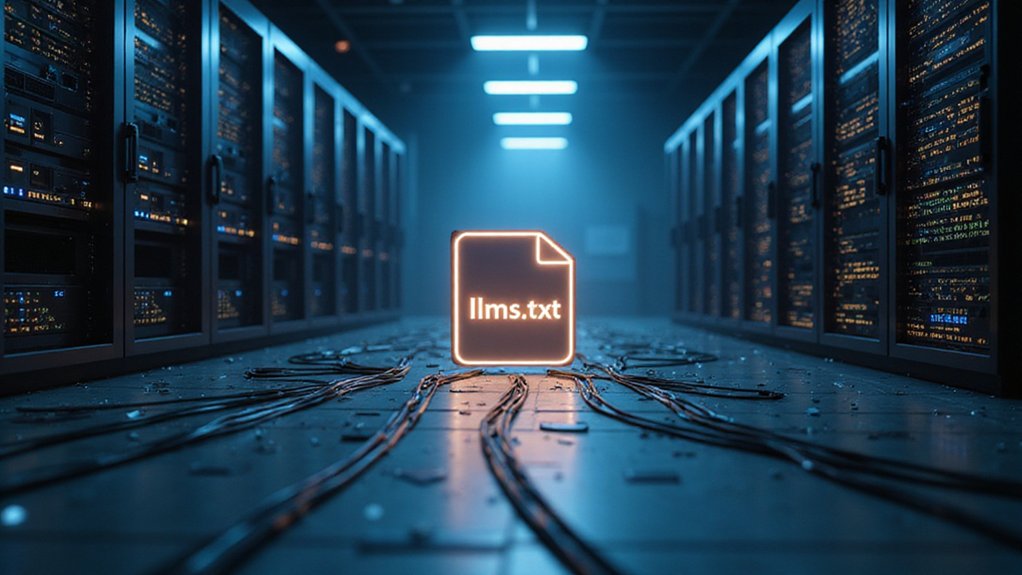While websites have long catered to human visitors and search engine crawlers, a new protocol is shaking up the digital environment. Called llms.txt, this markdown-based file placed at a website’s root is designed to give AI models streamlined access to content without the clutter of navigation bars, advertisements, and scripts.
Think of it as robots.txt’s cooler, more controversial cousin – but for large language models instead of search engines.
While robots.txt keeps crawlers in check, llms.txt is the VIP pass giving AI models direct access to your content.
The protocol’s mechanics are straightforward enough. Website owners create an llms.txt file containing curated summaries and links to key content, with an optional llms-full.txt for thorough documentation. It’s a neat solution to the problem of AI models struggling with HTML bloat and context window limitations.
But not everyone’s thrilled about it.
The battle lines are being drawn. On one side, early adopters like FastHTML and Tinybird are jumping on board, excited about optimizing their content for AI consumption. Makes sense – who wouldn’t want their docs to be AI-friendly in today’s environment?
On the other side, skeptics are raising eyebrows about control and power dynamics.
Let’s be real. This protocol fundamentally shifts who decides how website content gets processed. Website owners gain efficiency but potentially lose traffic if users start interacting primarily through AI interfaces.
Meanwhile, AI companies get cleaner data without having to improve their HTML parsing. Convenient, huh?
The concerns aren’t just theoretical. Questions about content misuse, attribution, and monetization remain unanswered. Will this protocol further entrench the power of large AI platforms? Some critics definitely think so.
Despite the controversy, the protocol addresses genuine technical challenges. AI-readable content means fewer parsing errors and better responses from LLMs. This efficiency comes at an environmental cost, however, as these models generate significant carbon emissions during both training and operational phases. The standard was proposed by Jeremy Howard as a way to enhance how AI systems access and interpret website content.
Organizations that dismiss this protocol may face existential risk as competitors prioritize AI-friendly content structures, potentially leaving them invisible in an increasingly AI-mediated digital landscape.
It’s like upgrading from a dusty rotary phone to a smartphone – technically superior but raising new questions about privacy and control.
Love it or hate it, llms.txt represents a pivotal moment in how we’re adapting the web for artificial intelligence consumption. The debate is just getting started.









